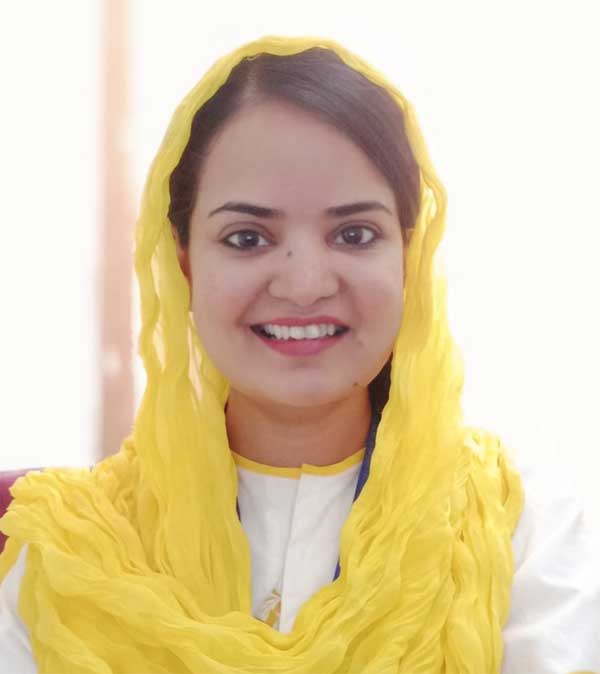India is the world’s hotspot of Islamophobia.
The human society always India is the world’s hotspot of Islamophobia. ave had a capacity for religious extremism. Many historical wars have been fought in the name of religion, as Matthew White in his famous book The Great Big Book of Horrible Things:
The Definitive Chronicle of History’s 100 Worst Atrocities stated religion as primary cause of 11 of the world’s 100 deadliest atrocities, caused gradual decline of the nations. However, as the democratic values imparted, policy making and legislation for basic human rights abetted human societies urbane to a great extent.
Despite the progression of human conscience, many states still seem helpless in eliminating religious radicalism and its causes. They rather develop entire political narrative on glorification and supremacy of the faith of the majority to authenticate the politics of hate. Their political manifesto clearly exhibits the aim to concede the power and disdain the religious affiliations of minorities and this creates a scenario of us versus them.
The politics on faith of majority is not limited to traditional societies of Asia and Africa. Surprisingly, many recent religion-nationalist movements are being emerged from the well-established democracies of Europe such as France, Norway, Sweden and Denmark due to the popular support of ultra nationalist politicking. Whether East or West, Islam is the religion and Muslims being its followers, are the targets of many hate and hostility based politics.
At present the center of religious hatred and extremism is our eastern neighbor India which is undoubtedly known as the most dangerous and unsafe country for its citizens belonging to the Muslim faith. According to Khaled Beydoun, a famous scholar and researcher of Islamophobia, “Undoubtedly, India has become the epicenter of Islamophobia at the global level”.
In one of his research papers, Khalid Beydoun divides the trend of growing anti-Muslim sentiment, hate crimes and religious fanaticism in India into two parts. First, the administration’s brazen and full-force support of anti-Muslim sentiments, and second, the obstructions in access to police and judiciary. India is the only country in the modern world that, on the one hand, invest heavily on propagating its image of being secular and democratic, on the other hand, its state institutions, especially the Indian police, are brutally and brazenly used by Muslims.
Due to deliberate negligence, extremist tendencies in India have been constantly increasing. This year Human Rights Watch (HRW) published a report, discussed the alleged role of Indian institutions in spreading anti-Muslim sentiment. Several videos shared by social media users reveal the overall plight of Muslims belonging to the weaker and poorer sections who are brutalized by the Indian police and public. Similarly, the attempt of institutional ban on Hijab by the Karnataka government further fueled the discriminatory sentiments and squeezed the freedom of its 12.29% Muslim population. Even in minor cases, the Muslim litigant becomes a victim of judicial hostility.
According to scholars such as Jeffrey Burton Russell, conflicts may not be rooted strictly in religion and instead may be a cover for the underlying secular power, ethnic, social, political, and economic reasons for conflict. A poor India with a struggling middle class mounting the vote bank and public support of Bharatiya Janata Party, a Hindu nationalist party in the last ten years. They have a strong idea of Hindu supremacy over all other races and religions.
As it was reported by Al Jazeera, ‘Islamophobia in Modi’s India is a norm’
The history of 800 years of Muslims rule over the Hindu majority, their pride and insolence has been rooted in Hindu society. This long period of foreign Muslims rulers have a deep psychological impact that today they treat Muslims in a worse status than slaves. In the manifesto of the Bharatiya Janata Party, committment Hindu nationalism is as sacred as religious faith. On several occasions, Indian ministers, including the Home Minister and the Defense Minister, of their intentions to fulfill the mission of a united India have reiterate their commitment to achieve Akhand Baharat (United India).
The poor economic and social status of Muslims, absence of strong Muslim leadership and powerful voice in Indian parliament has made their political status completely insignificant and irrelevant. At present, Muslims are second only to Hindus and Dalits among the two most impoverished and disadvantaged groups in India. Around 40% of the Muslim population languishes in abject poverty, with nearly 350 million living under US$1.25 a day.
No effective and meaningful protest observed to condemn anti-Muslim policies and substantial steps taken by key Muslim countries to held Indian government accountable for its support and aggravation of Hindu nationalist agenda. In addition to Pakistan, Bangladesh, Turkey, Malaysia and Indonesia from Middle Eastern and Gulf countries, a joint resolution brought to the United Nations forum or a demand for the establishment of a joint commission to investigate Muslim hostility and Islamophobia in this regard, Indian Muslims Enemy can play an important role in blocking policies.







